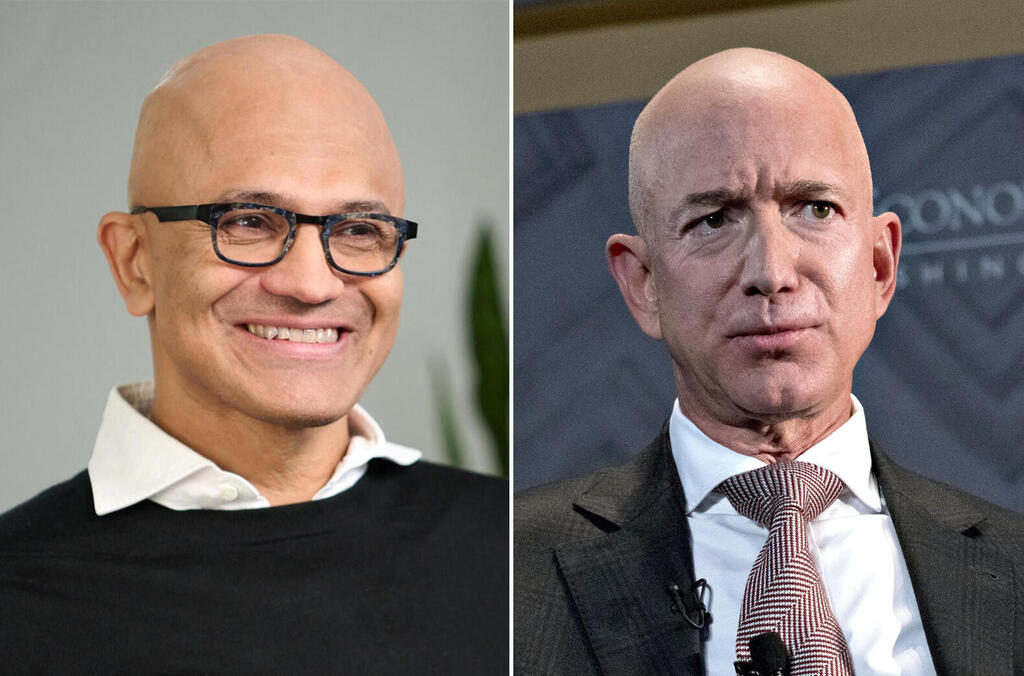The competition for high-tech jobs, particularly for junior roles, has intensified in recent years. Globally, and especially in Israel, recruitment has slowed down, and layoffs have occurred due to economic factors and the rise of advanced AI tools. In this challenging job market, candidates must stand out more than ever. The tech giants, often referred to as GAMPA companies—Google, Apple, Amazon, Microsoft, and Meta—continue to lead the way in setting trends for the labor market. What are these companies really looking for in job candidates, and how can one stand out among thousands of applicants? It turns out that technical knowledge alone isn’t enough. Here’s what top executives say is needed to secure a position in one of these coveted firms.
Sundar Pichai, CEO of Alphabet, Google’s parent company, emphasizes the importance of excellent technical skills and a deep understanding of computer science, particularly for junior roles. But beyond that, he seeks individuals who are willing to learn and adapt quickly. In an interview with the David Rubenstein Show, Pichai explained that Google looks for “superstar software engineers,” but humility is key.
Pichai shared a personal story from his interview with Google in 2004. When asked about Gmail, which had just launched, he admitted he had never used it. Instead of fabricating an answer, he admitted his lack of knowledge, which impressed the interviewers. According to Pichai, this honesty and eagerness to learn made a significant impact. Candidates who are willing to admit when they don’t know something—and are open to learning—are highly valued at Google.
Apple’s CEO, Tim Cook, believes that collaboration is the most critical trait for Apple employees. In a podcast interview with singer and creator Dua Lipa, Cook explained that Apple’s work culture revolves around the idea that “one plus one equals three,” meaning collaboration enhances ideas and outcomes. Cook said that Apple seeks candidates who can work well in teams and bring out the best in others.
Cook also noted that Apple hires people from various fields, not just those with coding skills. Curiosity and the willingness to challenge the status quo are essential traits for potential Apple employees.
Adapting to change and continuous learning
At Microsoft, under the leadership of CEO Satya Nadella, the corporate culture has evolved to emphasize soft skills alongside technical expertise. Nadella highlighted that adaptability, particularly in the fast-changing world of AI, is a crucial quality. In an article published by the Economic Times, Nadella stressed the importance of continuously learning, especially as new AI technologies emerge.
Nadella encourages employees to maintain a “growth mindset,” the belief that anything can be learned. He expects employees to actively seek opportunities for learning and personal development, while also emphasizing the importance of collaboration, flexibility, and customer focus.
Mark Zuckerberg, founder and CEO of Meta, values depth of knowledge over a broad range of skills. In an interview with Emily Chang for Bloomberg, Zuckerberg explained that mastering one thing well shows the ability to learn deeply, which can be applied to other areas. He also emphasized that skills are often more important than formal qualifications, pointing to his own experience of not completing a degree at Harvard.
Zuckerberg’s recruitment philosophy is simple: he asks himself if he would want to work for the person he is interviewing. He believes that hiring people who align with Meta’s values and goals is critical to long-term success.
Stars who challenge the status quo
Jeff Bezos, the founder and former CEO of Amazon, is known for seeking people who can innovate and challenge the status quo. In an article published by CNBC, Bezos highlighted the importance of hiring individuals who can raise the performance of an entire team, not just their own. He is looking for “stars”—people with new and unique ideas, even if they are sometimes “a bit annoying.”
Bezos believes that the best leaders are right most of the time, and this ability comes from listening and being willing to change one’s mind. His hiring criteria include three key questions: “Will you admire this person? Will they elevate the team’s performance? And in what area is this person likely to be a ‘superstar’?”
A balanced approach to hiring
Across all GAMPA companies, the traits that stand out are adaptability, collaboration, curiosity, and a willingness to learn. While technical skills remain essential, the ability to work well with others, challenge the status quo, and continuously develop one’s abilities is what these tech giants value most. For job seekers, especially those aiming for junior roles, demonstrating these qualities is critical to standing out in a highly competitive field.


